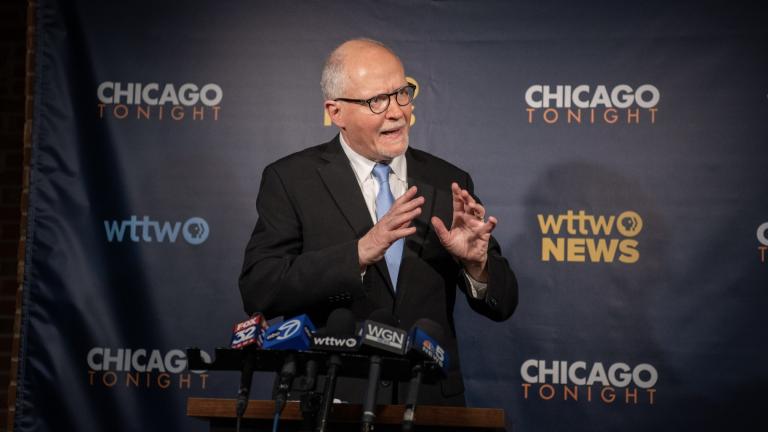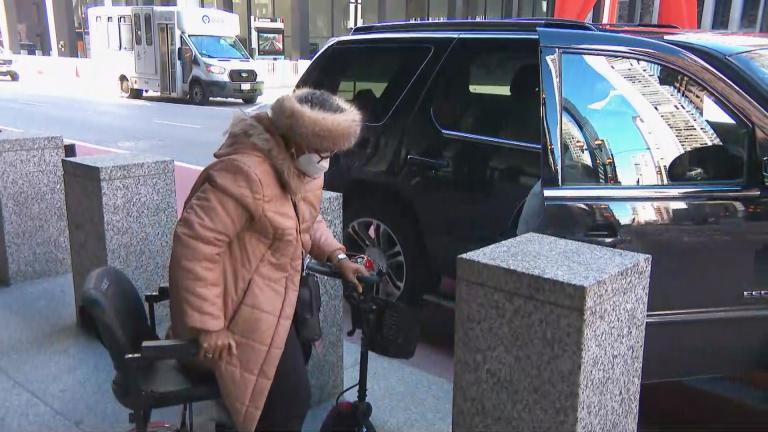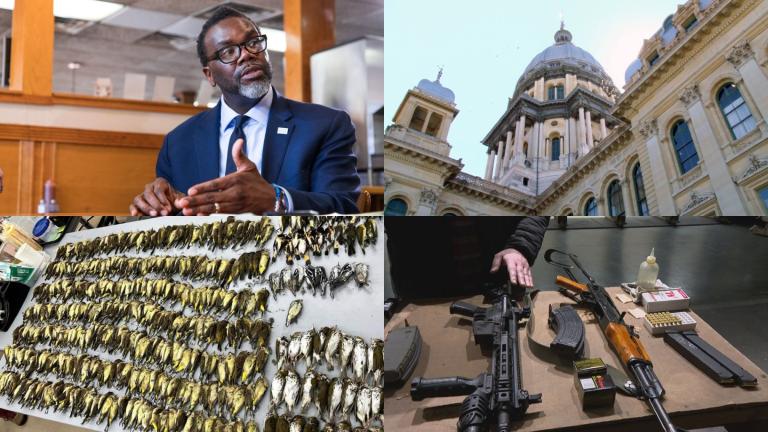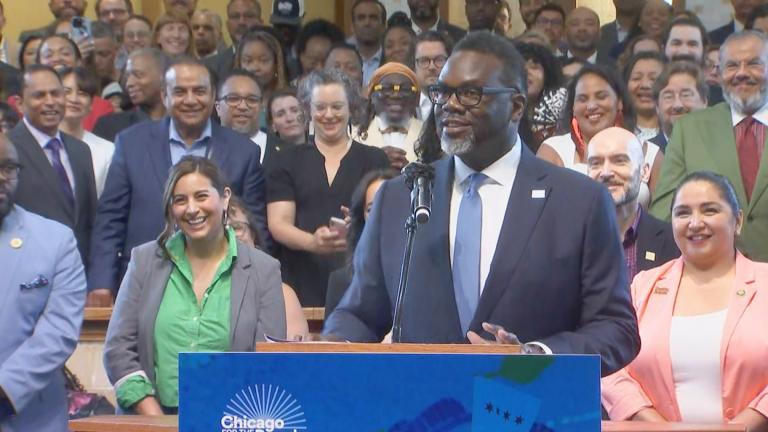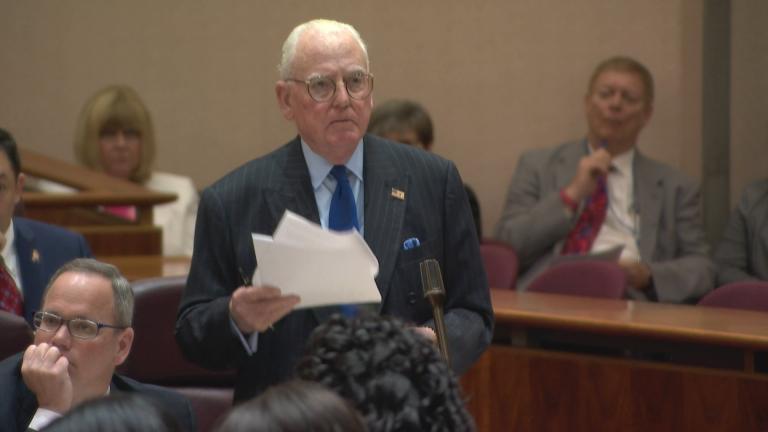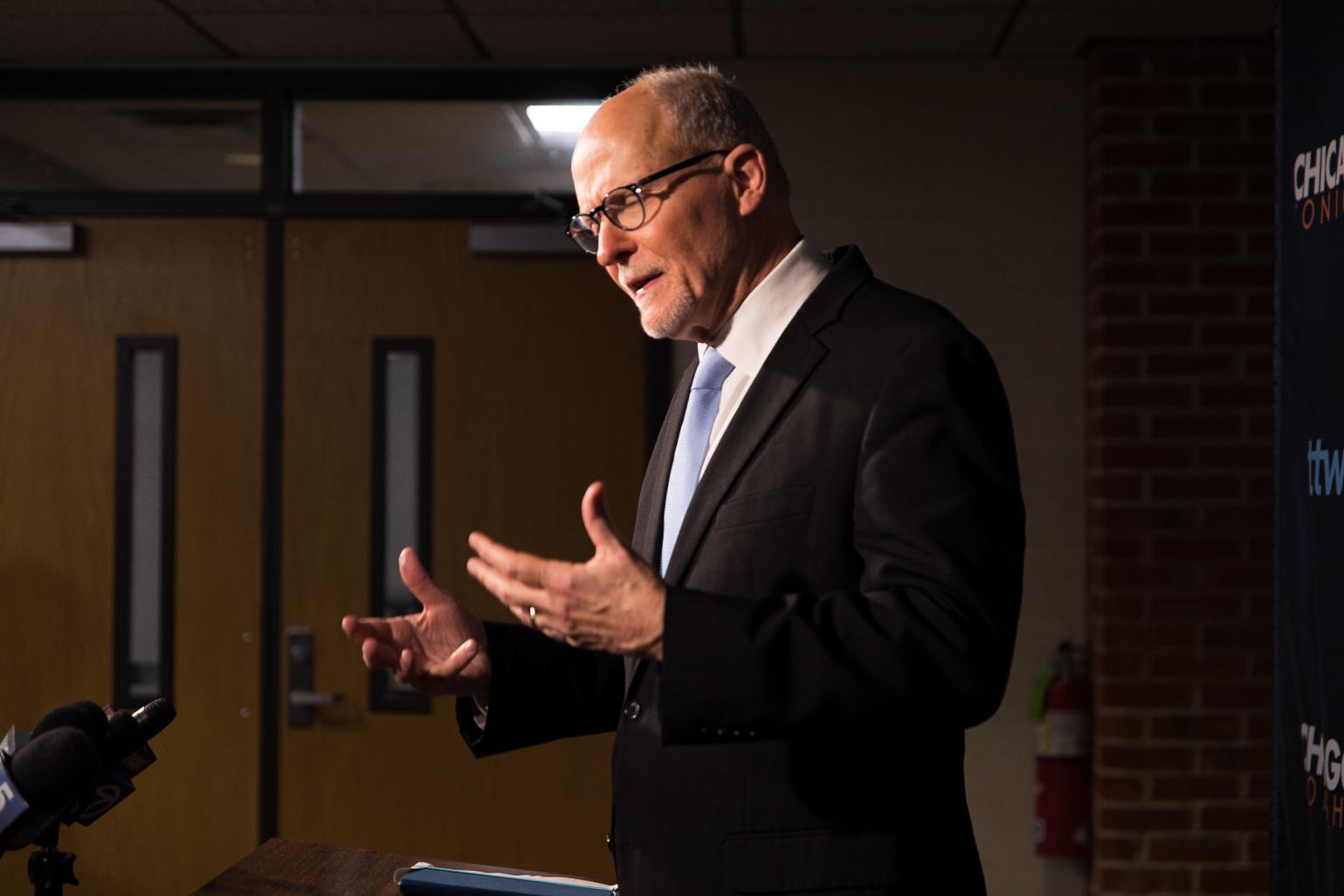 Paul Vallas fields questions from the news media on Feb. 7, 2023, after the WTTW News mayoral forum. (Michael Izquierdo / WTTW News)
Paul Vallas fields questions from the news media on Feb. 7, 2023, after the WTTW News mayoral forum. (Michael Izquierdo / WTTW News)
Paul Vallas and Brandon Johnson can now raise nearly unlimited amounts of cash for their campaigns, after Vallas loaned $100,100 to his campaign on Thursday, two days after advancing to the April 4 runoff.
Vallas, the former CEO of Chicago Public Schools, owns the Vallas Group, a professional services firm that focuses exclusively on government and the public sector, according to his public LinkedIn Page.
In 2021, Vallas worked as a consultant for the Bronner Group, according to the 2022 statement of financial interest he filed with the Chicago Board of Ethics on June 31 as he launched his campaign for mayor of Chicago. City rules require candidates for public office and elected officials to identify sources of income greater than $1,000, and to indicate whether they earned less than $5,000, more than $5,000 but less than $25,000 or more than $25,000. Vallas indicated he earned more than $25,000, according to the form.
Vallas said he was a consultant for the Bronner Group, which is focuses on strategy, transformation, and accountability services to government, according to the firm’s website.
State law does not require candidates to identify the sources of loans they make to their campaign committees.
Had Vallas not contributed more than $100,000 to his campaign, state-imposed campaign contributions would have been in place for the contest between Vallas and Johnson. During the first round of voting, all nine candidates could raise unlimited cash for their campaigns because businessman and philanthropist Willie Wilson contributed $5 million to his campaign in April.
The law is designed to even the playing field between wealthy candidates and those who cannot self-fund their campaigns by allowing them to raise bigger amounts from contributors.
State law limits individual donors to no more than a $6,000 contribution to a single campaign in most races. Businesses can contribute no more than $12,000 and political action committees are capped at $59,900, according to the rules.
Vallas’ campaign did not respond to a request from WTTW News about his decision to break the caps in the mayoral race.
Johnson’s campaign declined to comment to WTTW News. Johnson is a Cook County commissioner and an organizer for the Chicago Teachers Union.
Limits on campaign contributions imposed by city laws remain in place. Companies and people doing business with the city or its sister agencies are limited to contributing $1,500 to any one candidate per year, according to the city’s campaign finance ordinance.
The law, changed in 2012 by the City Council, holds both the person or firm making the contribution as well as the elected official who accepted the contribution responsible for the infraction. In addition, violations of the law can trigger penalties of at least $20,000, or three times the amount of the excessive contribution — whichever is greater.
Alisa Kaplan, executive director of Reform for Illinois, a group that tracks campaign contributions and lobbies for increased transparency in government, said Vallas’ decision to break the caps “probably won't change the financial dynamic of the race all that much” because there were no state-imposed caps in place for the first round of voting.
Kaplan called the part of Illinois’ law that Vallas used a “loophole” that candidates can use to “open the floodgates to unlimited money from big donors.”
“That leads to a money arms race where candidates have to rely even more on deep-pocketed special interests and rich people for funding to be competitive,” Kaplan said. “Which, in turn, increases the risk of corruption and the pay-to-play politics that contribution limits are meant to prevent.”
A law designed to limit the ability of wealthy candidates to purchase elected office has also allowed elected officials to get “megadonations that help them consolidate their power,” Kaplan said.
The fact that loans are allowed also makes a mockery of the whole original “self-funding” purpose of the law, Kaplan said.
“If you think you'll be able to pay yourself back from campaign funds there's very little cost to using it,” Kaplan said. “The fact that loans are allowed also makes a mockery of the whole original ‘self-funding’ purpose of it.”
Vallas raised more than $2.75 million, much of it from Chicago business leaders, according to reports filed with the Illinois State Board of Elections.
Johnson raised $1.82 million through much of it from the Chicago Teachers Union and other progressive labor organizations, according to state reports.
Contact Heather Cherone: @HeatherCherone | (773) 569-1863 | [email protected]

